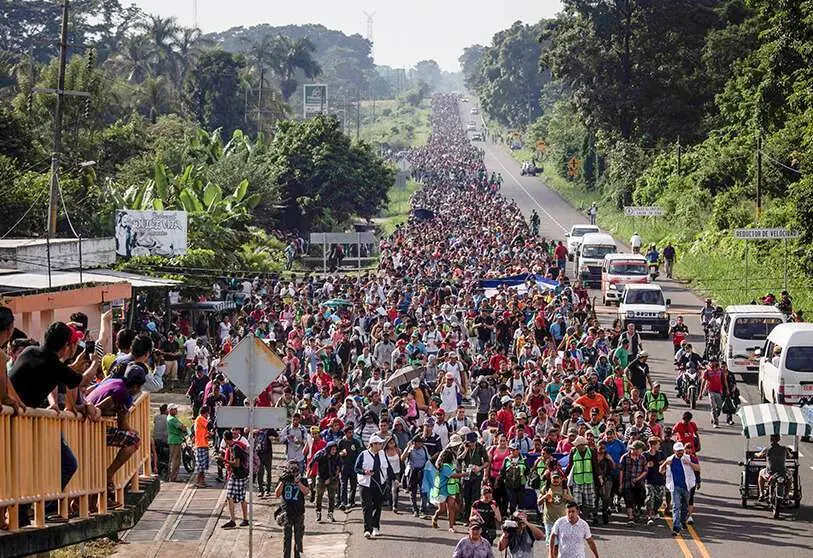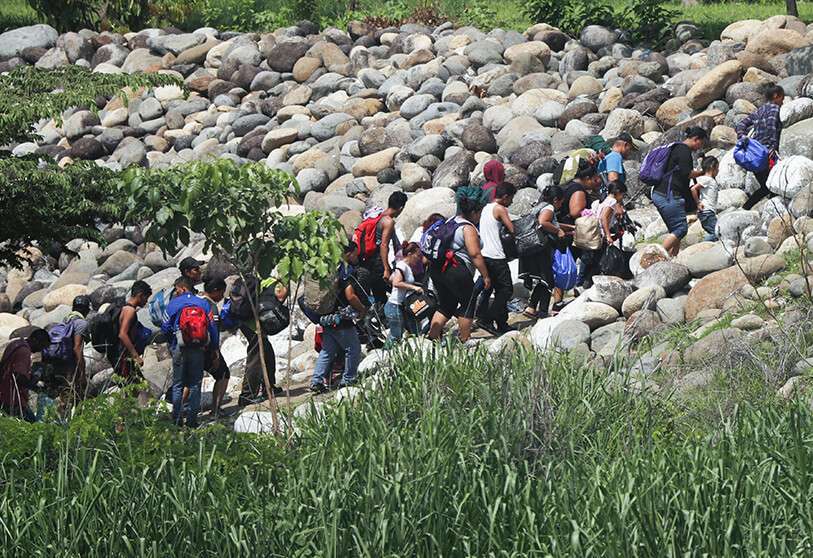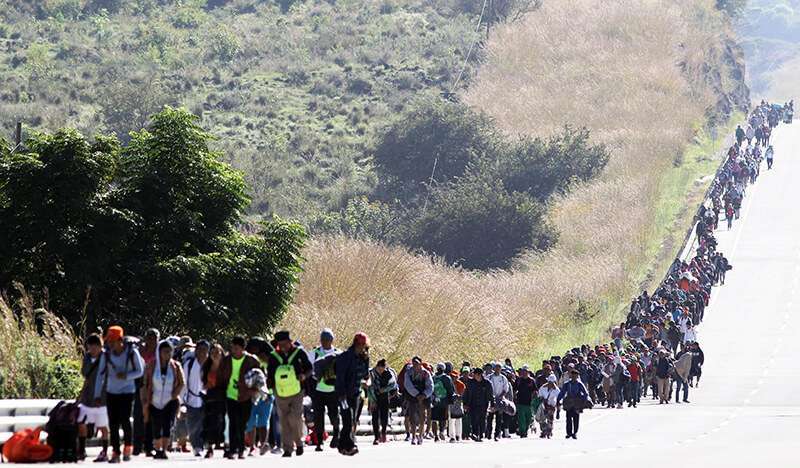Latin America is experiencing a very complex migration situation, says UNHCR chief

The United Nations High Commissioner for Refugees, Filippo Grandi, said Thursday that Latin America is experiencing a "very complex" migratory situation that includes major displacements in Central America and historic migrations such as that of Venezuelans, whose number is similar to that of Syrian exiles.
"I don't know if we can call it a crisis, but the migration and refugee problem is very complex for different reasons," Grandi said in an interview with Efe during a two-day official visit to Costa Rica, where he met with the country's president, Carlos Alvarado, visited a UNHCR office in the border area with Nicaragua, among other activities.
Grandi stressed that one reason for visiting Costa Rica is to give visibility to the migration phenomenon of Nicaraguans that has intensified since 2018 when a socio-political crisis erupted due to protests against President Daniel Ortega and violent repression.
"It's a complex migration situation. There is an economic element, a cyclical element and there are many people coming to seek refuge. We have discussed with the president how to improve care," he said.
Grandi commented that, since 2018, some 100,000 Nicaraguans have migrated to Costa Rica, which does not compare to the magnitude of Venezuelan exile, but is a point of priority attention for UNHCR that is being addressed with cooperation to guarantee social insurance and regularisation for refugees or applicants.

"There are smaller crises, but I think they are serious, like the Nicaraguan situation that has caused an influx of almost 100,000 people in three years. There are going to be elections in Nicaragua this year and there is a possibility of tensions, violence and additional flows, so there is an issue of preparedness in Costa Rica," he said.
The High Commissioner pointed out that migratory phenomena are always of regional interest and that Central America is experiencing flows from the Northern Triangle (El Salvador, Honduras and Guatemala) to Mexico and the United States; from Nicaragua to Costa Rica, but it is also a transit zone for other flows of, for example, Haitians and Cubans.
Grandi held a virtual meeting with the foreign ministers of Central America on Thursday, in which he perceived a "recognition that the problem exists" and that it can be tackled through regional action.
"In the north of Central America there continues to be a situation of violence, poverty, lack of services, weakness of the state or lack of state presence in some parts of the countries that continues to cause migratory flows," he said. "There are good plans in the region, but resources are needed," he said.
Grandi also emphasised that Venezuelan migration has increased in recent years as a result of the Venezuelan crisis.

"The Venezuelan problem is enormous. There are almost 6 million Venezuelans who fled their country and the vast majority of them are in the region. That number is almost the same as the Syrian exile population. The Venezuelan situation is one of the two or three largest displacement situations in the world and unprecedented in this region," he said.
Before his visit to Costa Rica, the High Commissioner was in Colombia, where last Monday the government announced that it will take in some two million regular or irregular Venezuelans, under a temporary protection status that will be valid for 10 years.
Grandi on Thursday described Colombia's decision as a "historic gesture" and compared it to a similar programme established by Costa Rica to regularise for two years Nicaraguans and Venezuelans who were not granted refuge.
As for the new US administration, headed by President Joe Biden, the UNHCR chief expressed hope that it will bring about a change in the approach to migration and refugee issues.
"The administration needs a little more time, but I think the change is positive because there is more interest in addressing the root causes, with more resources to the countries in the region with a focus not only on security, but on development, services and human security," he said.
The Biden administration "has already demonstrated that it will respect the fundamental principles of refugee protection," he said.
Grandi will end his visit to Costa Rica on Thursday and will travel to Spain where he will meet with high-level authorities in that country.








